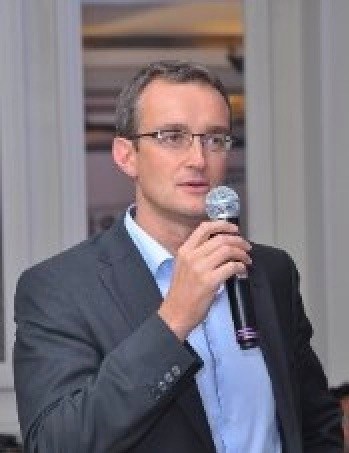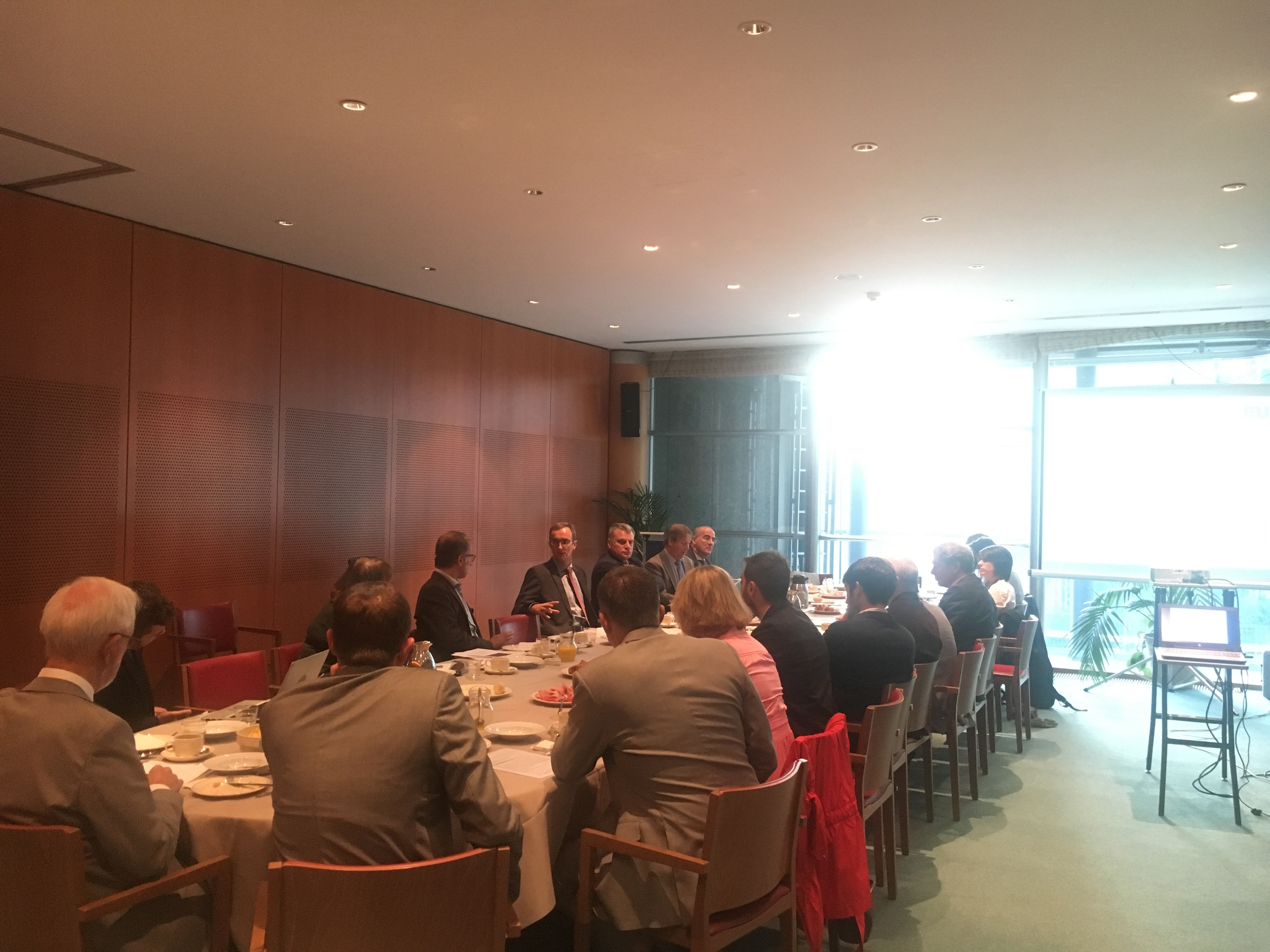Fruitful discussion at EUPAVE Breakfast Debate “Tendering for sustainable construction in the circular economy”
25/10/2018
On Wednesday 17 October EUPAVE and MEP Marc Tarabella held a Breakfast Debate on “Tendering for sustainable construction in the circular economy” at the European Parliament.
MEP Marc Tarabella, Member of the European Parliament, and Mr. Stéphane Nicoud, President of EUPAVE, welcomed the 25 participants and highlighted the importance of local authorities in tenders.
The event was also the occasion to release EUPAVE’s latest position paper on “Tendering for sustainable construction in the circular economy”.
* Welcome words

MEP Marc TARABELLA
MEP Tarabella began by emphasising the need to change mentalities for a more sustainable tendering.
He reminded that the European Parliament has a commitment with procurement that considers more than simply the lowest price, as expressed in the Resolution passed on 4 October 2018 (Coelho report).

Stéphane Nicoud, President of EUPAVE
President Nicoud indicated that EUPAVE believes that the construction sector – as any other sector of the economy, should aim at designing out waste and pollution as much as possible.
He presented EUPAVE’s latest publication “Guide on the basic principles of Life-Cycle Cost Analysis (LCCA) of pavements” where LCCA procedure is explained in detail and examples are provided.
* Presentations
Mr. Manu Diependaele explained the purpose and scope of EUPAVE’s guide. He gave information on Life-Cycle Cost Analysis (LCCA) for concrete pavements. LCCA is an economic analysis technique used to evaluate materials for infrastructures. He specified it is not a cost-benefit analysis, nor a life-cycle assessment. He used the Antwerp ring as an example, project in which he participated actively.
Mr. Pieter de Winne gave a brief introduction of the Flemish Roads Agency and the infrastructures of Flanders. He acknowledged that sustainability criteria are considered better in concrete pavements because they need less maintenance. He also mentioned the successful innovations created to reduce the rolling noise. Finally, Mr. de Winne recognised that LCCA is only applied exceptionally.
Mr. Antonio Paparella from the European Commission explained that time perspectives and environmental externalities are to be taken into account. He specified that LCC is an economic analysis, not an environmental assessment. The purposes of one and the other are different. He mentions the Discussion Paper “State of infrastructure maintenance” launched by the European Commission in September 2018 and encourages EUPAVE to participate.
* Closing remarks
Then followed a short debate and closing remarks by MEP Kouroumbashev.
He mentioned a serious accident that happened this summer in Bulgaria due to the bad condition of the asphalt. He underlined that public procurement differs much depending on the place in the EU where you are. “We should all aim at having more sustainable infrastructure. This is a job that affects all levels of administration”. Mr. Stéphane Nicoud concluded the debated and thanked the attendees for their presence and participation.



